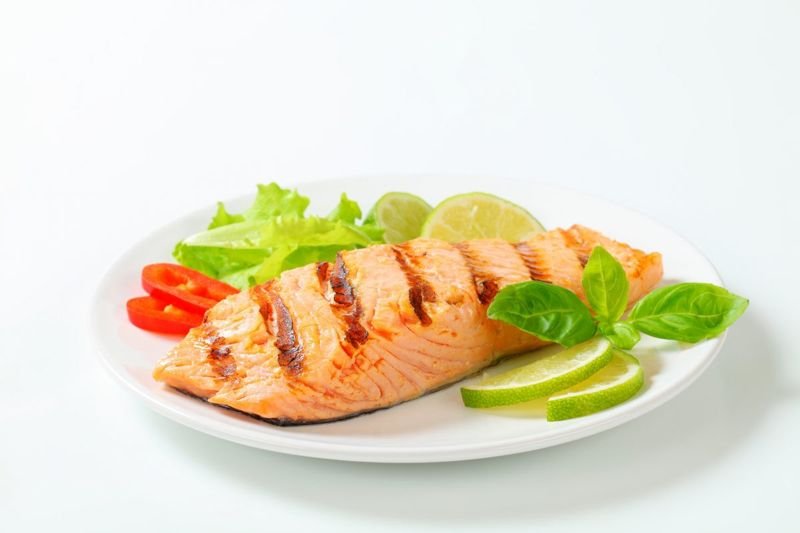Gouty arthritis, or more commonly known as gout, is a form of arthritis characterized by severe pain, redness, and tenderness in joints. Pain and inflammation occur when too much uric acid crystallizes and deposits in the joints.
- Red meat. Red meat has a higher purine content than white meat. Of the red meats, lamb is the most problematic for gout sufferers. People attempting to avoid gout flare-ups should try not to consume too much beef or pork either. It is also best to cut out tongue, liver, brains, kidneys, and sweetbreads to minimize gout attacks.
- Fish. High problematic gout fish choices includes herring, tuna, mackerel, sardines, and anchovies. Salmon is a good, low-purine alternative that is generally considered safe for people with gout in moderation. Other fish high in purines include shellfish, scallops, sardines, herring, anchovies, codfish, trout, and haddock. Better options are lobster, shrimp and crab, as they have lower purine content.
- Wild game. Wild game, especially rabbit, venison, quail, pheasant, and goose can trigger gout attacks. Like beef, pork, and lamb, these animals have high purine content that increases the risk of gout.
- Beer. The breakdown of beer in the body causes a spike in uric acid levels. Beer also dehydrates the body and slows the elimination of uric acid. Most experts suggest people with gout skip alcohol wherever possible, but an occasional glass of wine is generally fine.
- Sweet, sugary beverages. Sugary drinks can stimulate uric acid production and increase the risk of gout attacks. Fresh-squeezed juices and herbal teas are healthier alternatives to packaged fruit drinks and sodas.
- Certain fruits. Like sugary drinks, certain fruitscan trigger increased production of uric acid. Dates, prunes, lychees, plums, and pears are on the list of fruits to avoid.
- Even some vegetables. Asparagus, mushrooms, peas, spinach, and cauliflower should be eaten in moderation for people who get gout attacks.
Good for you and to keep attacks at a minimum, doctors recommend complex carbohydrates to reduce gout flares. Fructose is a type of sugar in honey and fruits and will almost immediately increase serum purine levels and the risk of a gout attack. Fruits, whole grains, and vegetables are also helpful with weight loss which can keep gout attacks at bay. Omega-3 polyunsaturated fatty acids and lean proteins are great to add to your gout-prevention diet. And, finally, remaining hydrated with water is awesome, too, for your overall health but also prevents higher purine levels that cause gout.
Chronic gout can be painful, unpredictable, and cause permanent joint damage. To prevent gout, first try adjusting your food and drink. You will not only minimize your attacks, you'll also enjoy better overall health.








